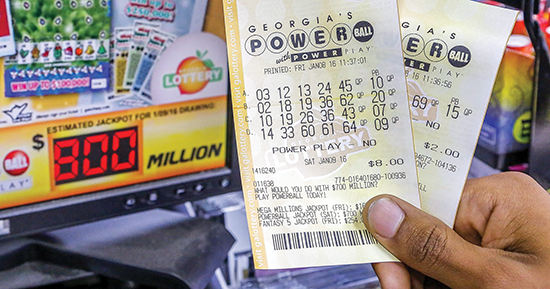Lottery jackpot record
Powerball craze raises theological questions on where satisfaction is found
Earlier this month, the Powerball lottery reached a record-breaking, mind-boggling jackpot of $1.5 billion, and the question of the day across the country seemed to be, “What would you do if you had that winning ticket?”
Across campuses and offices, in homes and apartments and schools, friends and families impressed each other with claims that if they won hundreds of millions, they would travel the world, become philanthropists, buy yachts and adopt orphans, give, invest, experience and splurge.
The amazing thing about hope is that it can often blind us from multitudes of very likely and very negative potential outcomes, and as Americans got a taste of this fantastic hope, they opened their wallets with the mentality that “if somebody has to win, why couldn’t it be me?”
However, this is exactly the mentality that we should not have regarding the potential of mass fortune that is virtually painless, because unfortunately, on this side of eternity that simply does not exist.
For some, the lottery is more sport and recreation than anything. But for others who fall into the poverty demographic, the lottery is viewed as a sort of last hope. The lottery receives the largest amount of funding from the poorest class in society and thus manifests itself as not just an economical issue but also an ethical one.
According to the North American Association of State and Provincial Lotteries, last year, Americans spent a total of $70.15 billion on lottery tickets, which is more than what was spent on sporting events, movies, books and music combined.
This statistic may seem shocking to many readers, however, for people in desperate need of a big break financially and who are unaware of the nearly one-in-293 million odds that are against them, spending just a few dollars at the chance of gaining millions equates lottery tickets to a cookie in a cookie jar that is just too tempting to be ignored.
Dave Ramsey, a financial author, television and radio host, and motivational speaker, comments on the lottery lines
inside gas stations.
“Rich people and smart people would be in the line if the Lotto was a real wealth-building tool, but the truth is that the Lotto is a rip-off instituted by our government,” Ramsey stated in 2012.
Though the lottery does contribute to society through scholarships and funding many primary schools, based on the statistics, buying a lottery ticket is essentially equivalent to throwing your money away. And Christians, affluent Christians especially, are left to scratch their heads and wonder if this “game” is ethical at all.
The statistics previously stated tell us that more money is spent on lottery tickets than on entertainment, and those in serious debt and poverty are willing to spend nearly a tenth of their minute income investing in something they will never benefit from, which reveals an overwhelming longing for hope and earthly riches.
Since the fall of man, humans have wrestled with the urge of immediate gratification and are incredibly prone to invest time, money, and often even entire lives into worthless ventures.
The question we as Christians should be asking ourselves on the issue of the lottery, whatever millions or billions it may promise, is how we are investing the money that has been entrusted to us by God to bring him glory.
Is there a better way to spend that dollar burning in our pocket, not on a lottery ticket, but perhaps on a more direct and sure investment?
C.S. Lewis beautifully describes our sad state in his essay “The Weight of Glory.”
“It would seem that Our Lord finds our desires not too strong, but too weak,” Lewis wrote. “We are half-hearted creatures, fooling about with drink and sex and ambition when infinite joy is offered us, like an ignorant child who wants to go on making mud pies in a slum because he cannot imagine what is meant by the offer of a holiday at the sea. We are far too easily pleased.”
We should raise our expectations on the good that can come with investing in what God says is good and holy and honorable rather than squandering our money on a flimsy chance of riches at the expense of the poor and uneducated. The lottery is a game to some, but it is financial suicide for others, and as the body of Christ we need to walk circumspectly around it and instead use God’s promise to prosper us and give us a hope and a future (Jeremiah 29:11) as the foundation to dream big.


Well spoken, Samantha. Falling into poverty is definetely not the purpose of lotteries I guess. Playing the lottery should be a fun and exciting hobby, giving hope to people and make them dream big, just like you say.